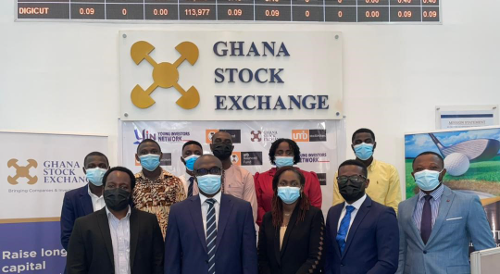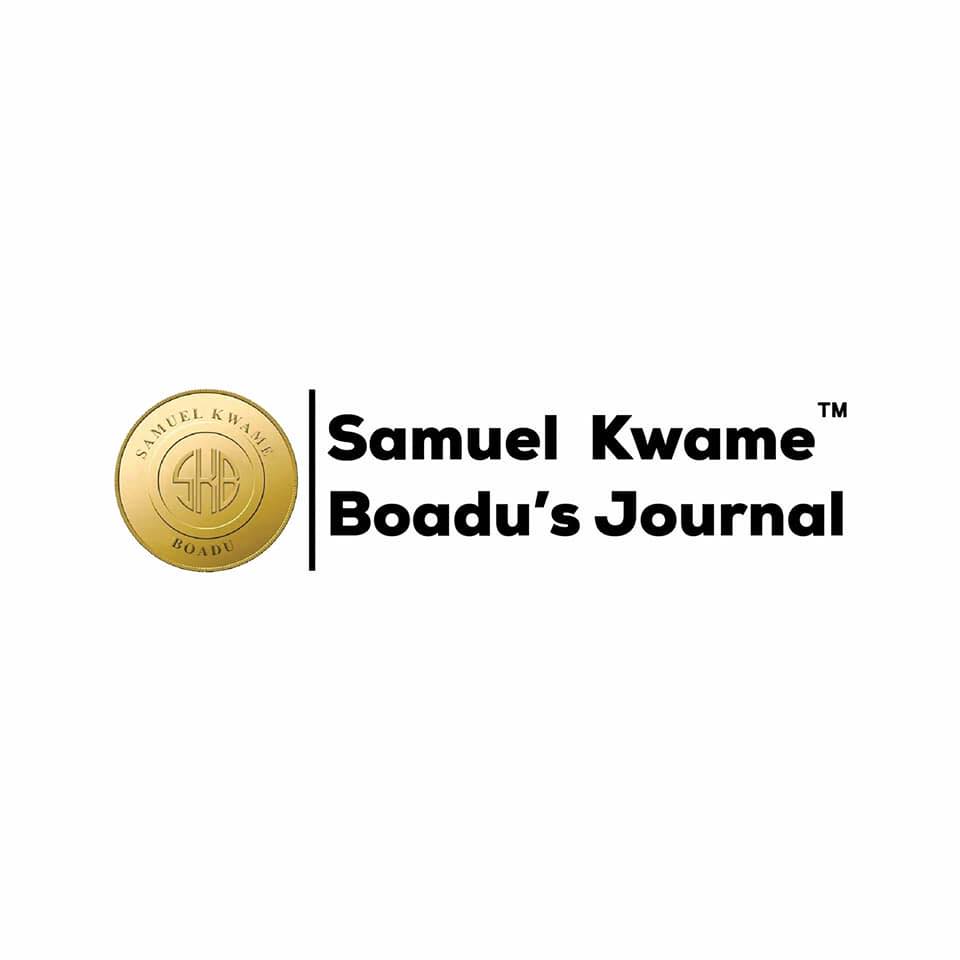A deeper look into the banking and insurance rally fueling Ghana’s capital markets
Accra — In 2025, one of the standout performers on the Ghana Stock Exchange has been the GSE Financial Stocks Index (GSE-FSI or GSE Financial Index), which tracks the performance of listed financial-sector equities (banks, insurers, etc.). As of late October, the financial index has outpaced the broader market, posting a year-to-date gain of ~73.9 percent compared to ~70.7 percent for the overall composite index.
This divergence signals a renewed investor focus on financials, but raises a crucial question: What is powering the rally in the GSE Financial Index? Below, we unpack the key drivers, underlying risks, and what to watch going forward.
📢 GET A DETAILED ARTICLES + JOBS
Join SamBoad's WhatsApp Channel and never miss a post or opportunity.
1. Macro Tailwinds: Stability, Reserves, and Cedi Recovery
Any sustained rally in financials must ride on a stable macro backdrop. In recent months, Ghana’s economic metrics have shown real improvement:
-
Inflation has dropped sharply, reaching 9.4 percent in September 2025 — its first time in single digits in years.
-
The cedi has appreciated by over 37 percent year to date, reversing much of the depreciation observed in prior years.
-
Gross international reserves have climbed to roughly US$12 billion, providing a buffer against external shocks.
-
Meanwhile, Ghana’s GDP growth has strengthened, with non-oil sectors like agriculture and services leading the rebound.
These gains restore investor confidence in the stability of local currency assets — an essential precondition for financial-sector equities to re-rate.
2. Banking Reforms & Improved Regulatory Oversight
The financial institutions that underpin the GSE Financial Index have benefited from regulatory reforms initiated over the past few years. Some of the most influential factors:
-
Stricter supervision and recapitalisation requirements have pushed weaker banks to shore up balance sheets, making survivors more resilient.
-
The Bank of Ghana’s discipline in monetary policy has strengthened credit quality and reduced non-performing loans.
-
Efforts to deepen financial inclusion and digitisation have helped broaden the customer base, increase deposit mobilization, and reduce cost of intermediation.
In essence, reforms have restored trust in the integrity of Ghana’s banking and insurance systems — making these stocks more attractive to both domestic and institutional investors.
3. Reallocation from Fixed Income and Yield Attraction
One of the persistent headwinds for equities in Ghana has been the competition from high-yield government fixed-income instruments. However:
-
As policy rates and yields stabilize or moderate, the yield premium between equities and bonds is narrowing, making equities (especially dividend-yielding financial stocks) carry greater appeal.
-
Many banks are re-investing excess liquidity into interest-earning treasury bills and money market instruments. As yield curves flatten or compress, pressure mounts on capital to seek higher return avenues: financial equities.
Investors rotation from fixed income to equities often accelerates in a turning interest-rate regime — and financials are natural beneficiaries of that rotation.
4. Stronger Earnings & Dividend Prospects
Financial-sector stocks are inherently sensitive to credit growth, interest margins, loan performance, and deposit trends. In 2025:
-
Several banks have reported improving net interest margins and lower provisioning charges, benefitting from asset quality recovery.
-
Non-interest income, including fees, commissions, and digital banking services, is gaining importance, diversifying revenue streams.
-
With many financials now generating meaningful free cash flow, investors are expecting stronger dividend payments — boosting the total return appeal.
As earnings forecasts climb, valuations that once seemed stretched now begin to look supportive, reinforcing further buying interest.
5. Sector Rotation & Investor Sentiment
Beyond fundamentals, market psychology and tactical rotation play a role:
-
With the broader GSE Composite Index already posting double-digit returns, investors are rotating toward sectors with further upside, and financials offer that combination of liquidity and yield.
-
In days of lighter volume, the financial index has frequently led index gains, underscoring its role as a market swing sector.
-
Institutional investors and pension funds — which often re-enter cautiously — see financials as a safer “backbone” play compared to more volatile sectors.
Investor sentiment is increasingly reinforcing the upward trend in financials, creating a virtuous cycle.
6. Favorable Valuation Gaps
Compared to regional peers or past historical multiples, many Ghanaian financials still trade at modest valuation multiples (P/E, P/B). This leaves valuation upside for investors willing to believe in structural reforms and earnings recovery.
-
As capital flows return and multiples re-expand, financial stocks stand to benefit more than commodity or industrial names.
-
If the broader market valuation re-rating continues, financials with strong balance sheets are likely to capture a disproportionate share.
In short, the valuation cushion provides room for investors to step into financials with convex upside.
Risks & Counterweights to the Rally
No rally is without headwinds. Key considerations that could temper or reverse the gains in the GSE Financial Index include:
-
Policy Reversal or Fiscal Slippage: Loose fiscal policy, especially in election cycles, could reignite inflation or currency depreciation — blowing away equity gains.
-
Credit Quality Reversal: A new wave of bad loans, especially if global shocks impact borrowers, could force higher provisions.
-
Interest Rate Spikes: If rates rise sharply to fight external pressures, yield competition from fixed income might re-attract capital.
-
Liquidity Constraints: The GSE remains relatively shallow; large buys or sells can move prices disproportionately, making sustained inflows essential.
-
Overvaluation Fever: If financial stocks get ahead of fundamentals, corrections are likely — especially in stressed macro environments.
Prudent investors will monitor these risks even as they ride the current upswing.
What to Watch: Catalysts for Further Upside
To sustain momentum in the financial index, the following variables will be critical:
-
Earnings surprises and dividend declarations from major banks and insurance firms
-
Continued macroeconomic stability, particularly in inflation, currency, and reserves
-
Renewed interest from institutional and foreign investors, especially pension funds
-
New listings or reclassification of financials into the financial index
-
Further digital banking and fintech tie-ups that expand reach and margins
If these catalysts align, the GSE Financial Index may continue to lead the broader market rather than merely riding it.
Source: The High Street Business
Disclaimer: Some content on The High Street Business may be aggregated, summarized, or edited from third-party sources for informational purposes. Images and media are used under fair use or royalty-free licenses. The High Street Business is a subsidiary of SamBoad Publishing under SamBoad Business Group Ltd, registered in Ghana since 2014.
For concerns or inquiries, please visit our Privacy Policy or Contact Page.



















